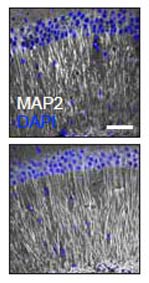Memories of traumatic events often last a lifetime because they are so difficult to treat through behavioral approaches. A preclinical study in mice published in the journal Cell reveals that drugs known as histone deacetylase inhibitors (HDACis) can enhance the brain’s ability to permanently replace old traumatic memories with new memories, opening promising avenues for the treatment of posttraumatic stress disorder (PTSD) and other anxiety disorders.
“Psychotherapy is often used for treating PTSD, but it doesn’t always work, especially when the traumatic events occurred many years earlier,” said a Professor of Neuroscience at the Massachusetts Institute of Technology. “This study provides a mechanism explaining why old memories are difficult to extinguish and shows that HDACis can facilitate psychotherapy to treat anxiety disorders such as PTSD.”
One common treatment for anxiety disorders is exposure-based therapy, which involves exposing patients to fear-evoking thoughts or events in a safe environment. This process reactivates the traumatic memory, opening a short time window during which the original memory can be disrupted and replaced with new memories. Exposure-based therapy is effective when the traumatic events occurred recently, but until now, it was not clear whether it would also be effective for older traumatic memories.
Metabolic activity (green and red colors) in the hippocampus (white dotted line) of animals that underwent extinction training in combination with HDACis (right) is significantly higher than in animals that underwent extinction training alone (left). Metabolic activity serves to estimate the learning capacity of an animal.
In the first phase, the researchers exposed mice to a tone followed by an electrical foot shock. Once the mice learned to associate these two events, they began to freeze in fear upon hearing the tone by itself, even when they did not receive a shock.
Using an extinction protocol, which is similar to exposure-based therapy, the researchers repeatedly presented the tone without the shock to test whether the mice could unlearn the association between these two events and would stop freezing in response to the tone. The extinction protocol was successful for mice that were exposed to the tone-shock pairing just one day earlier, but it was not effective for mice that originally formed the traumatic memory one month earlier.
The abundance of dendrite in the hippocampus of animals that underwent extinction training in combination of HDACis (lower) is significantly higher than in animals s that underwent extinction training alone (upper).
The researchers hypothesized that epigenetic modification of genes involved in learning and memory might be responsible for the diminished response of treatment for older memories. The researchers tested whether HDACis, which promote long-lasting activation of genes involved in learning and memory, could help replace old traumatic memories with new memories. Mice previously exposed to the tone-shock pairing received HDACis and then underwent the extinction protocol. These mice learned to stop freezing in response to the tone, even when they originally formed the traumatic memory one month earlier.
“Collectively, our findings suggest that exposure-based therapy alone does not effectively weaken traumatic memories that were formed a long time ago, but that HDACis can be combined with exposure-based therapy to substantially improve treatment for the most enduring traumatic memories,” the researcher said.








Leave a Reply